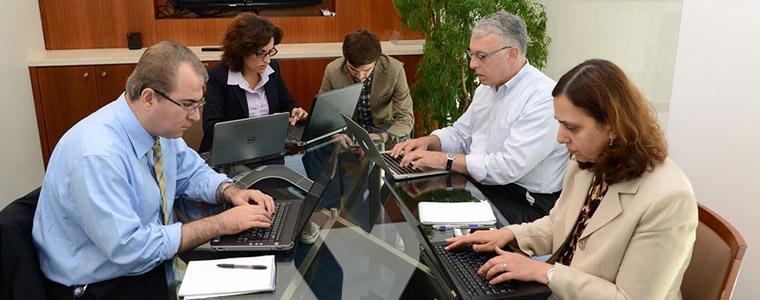Militant Sweep in Iraq: A Twitter Chat on the Latest Developments
On June 13, 2014, @USIP hosted a Twitter conversation regarding the worsening situation in Iraq.

Over the last few days, Sunni militants have swept through northern and western Iraq. Anti-government forces, mainly under the banner of the Islamic State of Iraq and the Levant (ISIL, or also known as ISIS), a group that has fought Syrian President Bashar al-Assad’s military in Syria, have taken over the cities of Mosul and Tikrit. They are now nearing Baghdad. Meanwhile, Kurdish paramilitary fighters have gained control of Kirkuk. With the Iraqi army’s weapons reportedly seized and flowing back to Syria, is a conflagration about to erupt in the heart of Mesopotamia? Who are these militants really, and what sparked this rapid offensive?
Experts from the Syria and Iraq programs* of the U.S. Institute of Peace came together on Twitter on Friday, June 13, for an online conversation and question-and-answer session examining the latest developments, political context, and possible responses by Iraq and the United States.
Find all of the tweets with #USIPIraq or view them collected together on Tagboard.
From @USIP:
- Khitam Al-Khaykanee
Program Officer, Rule of Law - Raya Barazanji, @rbarazanji
Senior Program Officer, Middle East & Africa - Sarhang Hamasaeed
Senior Program Officer, Middle East & Africa - Steven Heydemann, @SHeydemann
Vice President, Applied Research on Conflict
*USIP has played a key role in promoting peaceful governance through collaborative civic engagement in Iraq since 2003. USIP’s core mission is to strengthen local capacities to prevent, manage and resolve conflicts peacefully by assisting Iraqis to develop the tools and institutions necessary to peacefully resolve disputes. For more on USIP’s work in Iraq, please visit our Iraq page.
*Since the start of the Syrian uprising, USIP’s efforts have focused on facilitating the efforts of the Syrian opposition to plan and prepare for the transition to a post-Assad Syria. For more on USIP’s work on Syria, please visit our Syria page.



